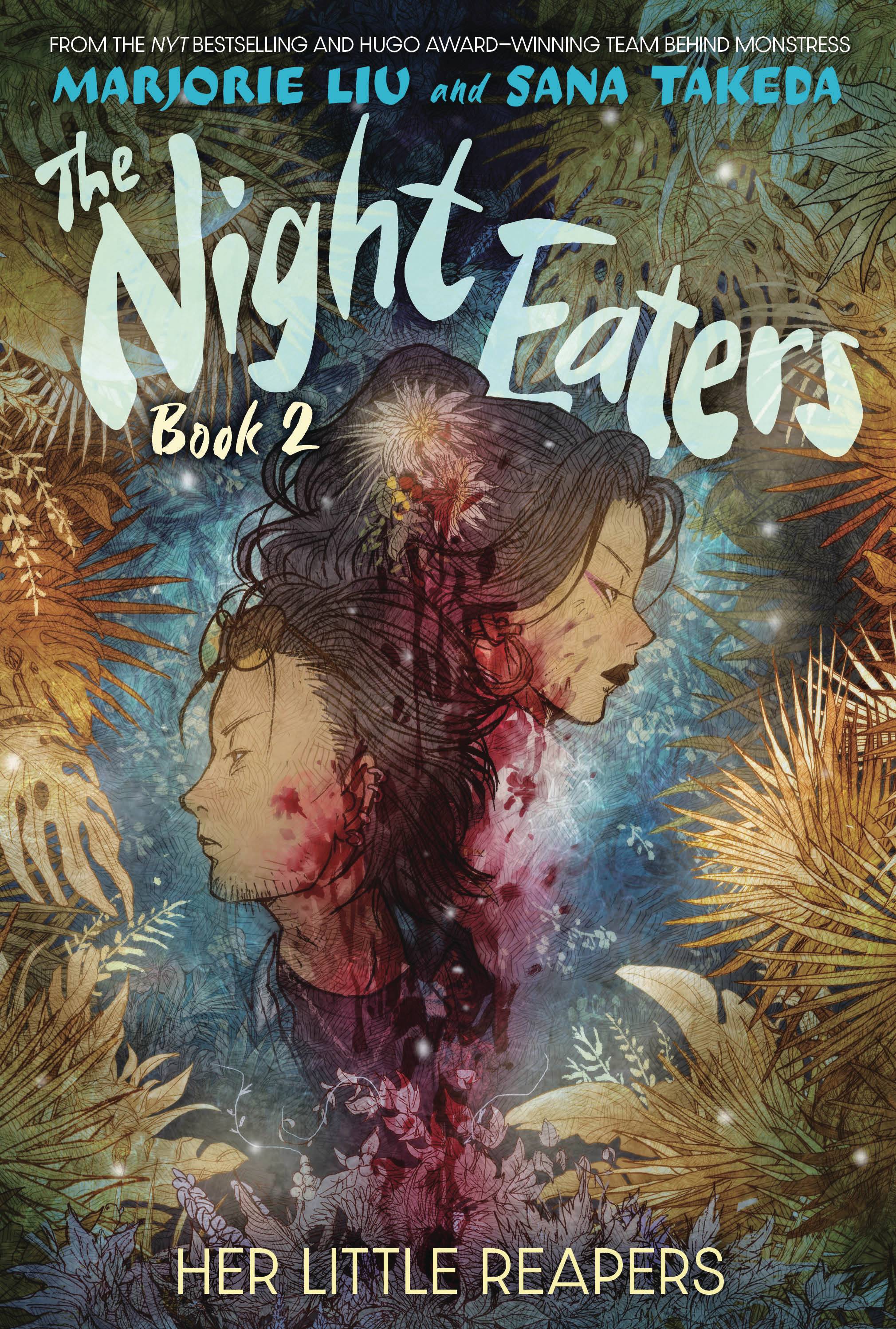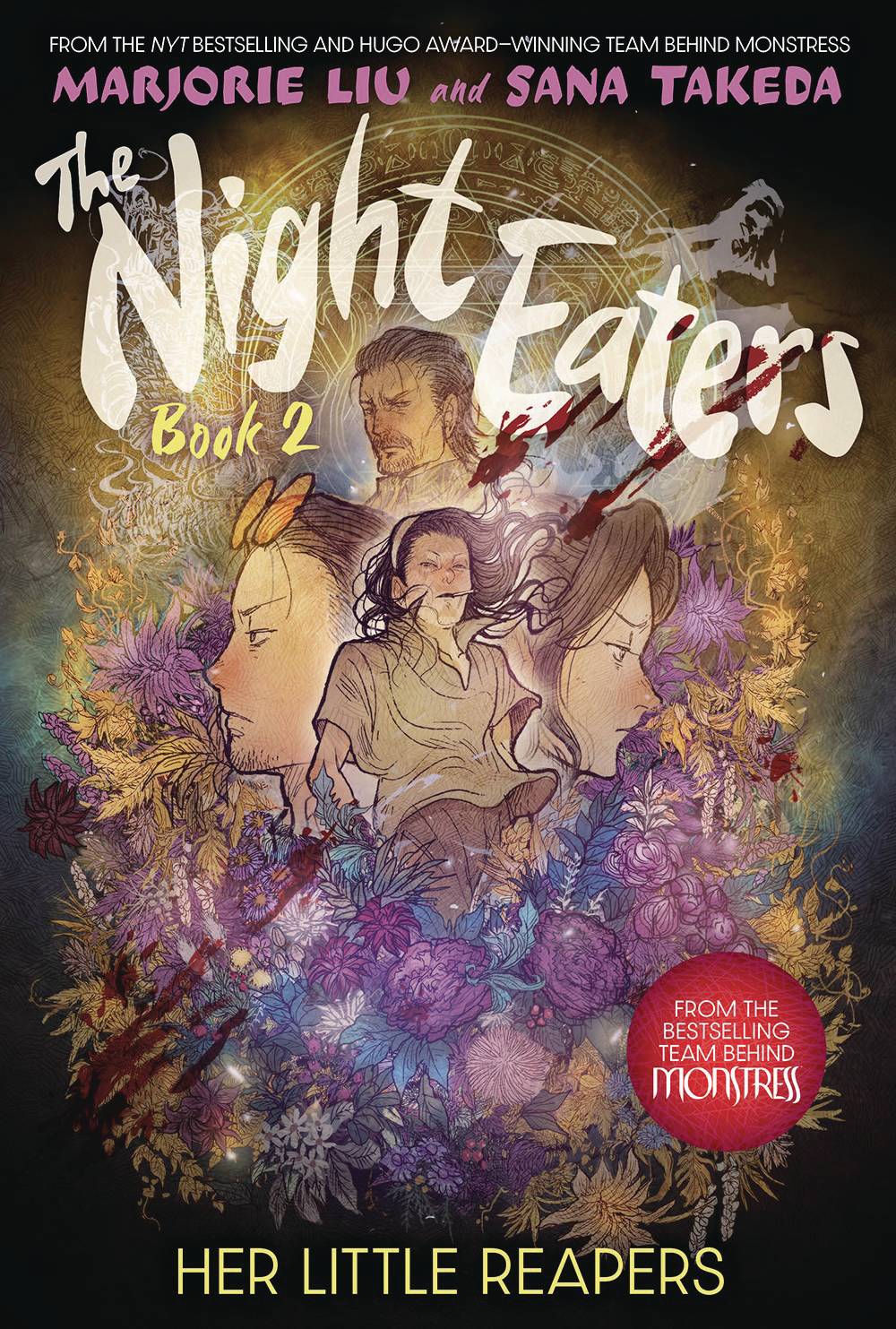Abrams Comicart's The Night Eaters enters into its second volume right ahead of Halloween. Created by writer Marjorie Liu and artist Sana Takeda, The Night Eaters Vol. 2: Her Little Reapers picks back up with the Ting Twins! Four months after a gory, chaotic summoning revealed their supernatural lineage.
In the following interview, Marjorie Liu (Monstress) explains what new dealings are in store for Ip, Keon, and the high society of supernatural elites.

Firstly, what is The Night Eaters?
I don't want to spoil too much in case readers haven't yet delved into the first book, but let's just say that this is a series that begins when an immigrant Chinese mom decides to teach her disaffected twin children a lesson -- by throwing them into the gaping jaws of hardship -- hardships of a supernatural kind -- and the rest of the series deals with the ramifications of that parenting choice, and the secrets that get revealed, and the transformations that ensue.
What happens when you discover that the world -- and your own life -- are bigger and stranger than you ever imagined? Many of us probably wish for lives a little less ordinary, a little more exciting and magical, but if our wish actually came true, would that really be a good thing? In the case of Milly and Billy, ignorance is definitely bliss.
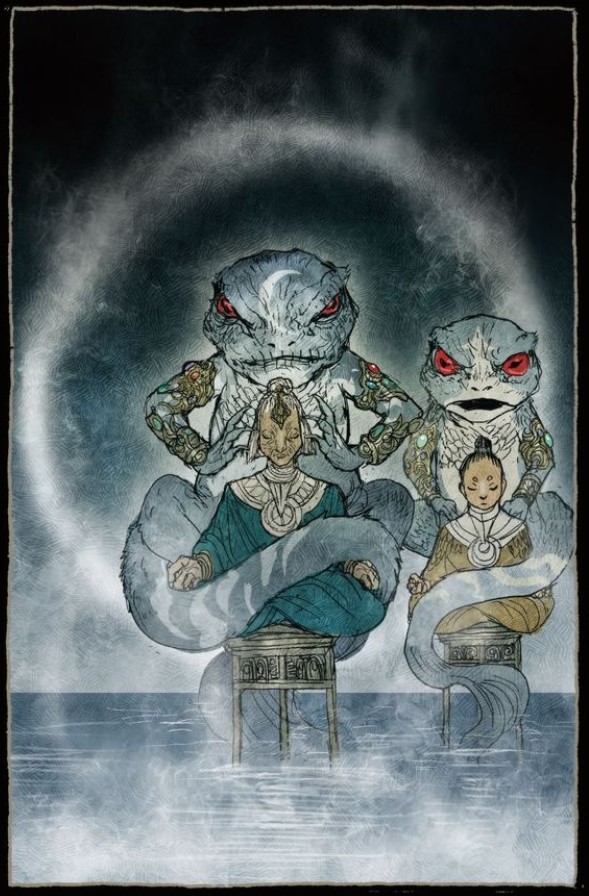
Catch us up to speed, where do we find the Ting family at the start of Book Two?
It's hard to do this without too many spoilers, but let's give it a go: Milly and Billy are having a profound existential crisis -- they are, neither of them, normal -- and yet they are trying to pretend everything is normal. The conflict runs deep -- is it better to pretend that the world you knew isn't a lie -- or embrace the strange and mysterious, and completely reinvent your life around that? And what are the responsibilities, if any, that come with knowledge?
Neither Milly nor Billy were particularly happy with their previous lives, but having those lives completely upended isn't exactly a source of joy, either.
The burden isn't just on the twins, either. Their parents, Keon and Ipo, were the ones who decided to open their eyes to an entirely different world, but at the start of Book Two we see they've been a bit avoidant when it comes to guiding their children on what comes next. Keon and Ipo are having a few regrets. Life was a lot easier for them when their children were being fed lies.
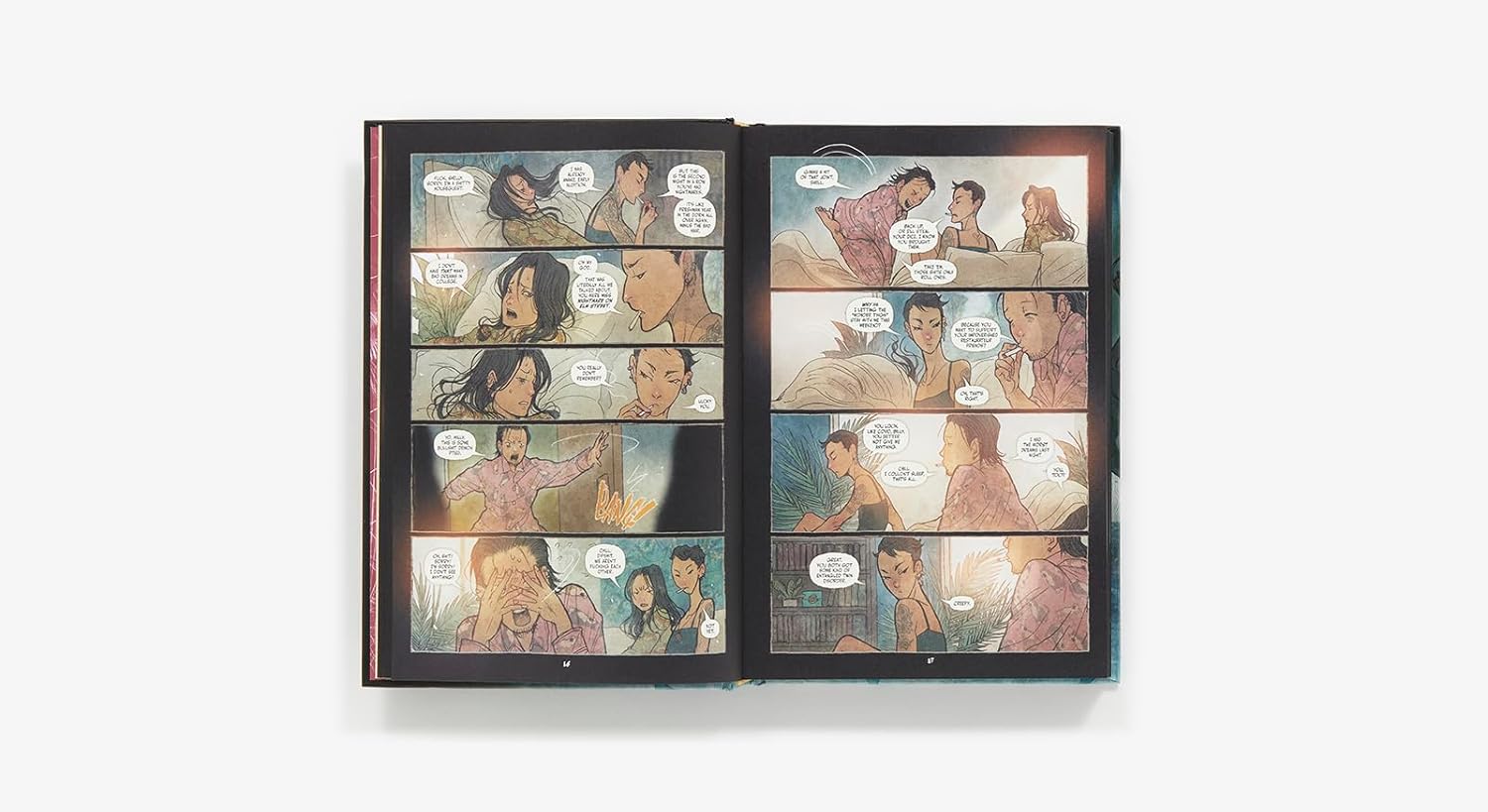
How did The Night Eaters come about as a project?
Completely by accident! I wrote the first book during the height of the pandemic -- after months of going stir-crazy, watching too many horror movies. Plus, I am obsessed with the East Asian Gothic -- with how gothic Chinese family history can be -- and that started brewing in my lockdown mind. I began imagining what would happen if my aunts and grandmothers happened to move into a haunted house, and cracked myself right up. I laughed because there was no question in my mind that the ghosts would be toast.
That started the ball rolling, and I began to cook up the family -- the Tings. I love telling stories about families. Who we are, who we become, how we love, how we hold ourselves in the world -- so much of that comes from our families, and the love they give us, or the love they deny us. There is no richer source of conflict and terror and beauty than the occulted bonds of parents, children, and siblings. I've always known you don't need ghosts to write about a haunting -- you just need an immigrant family.
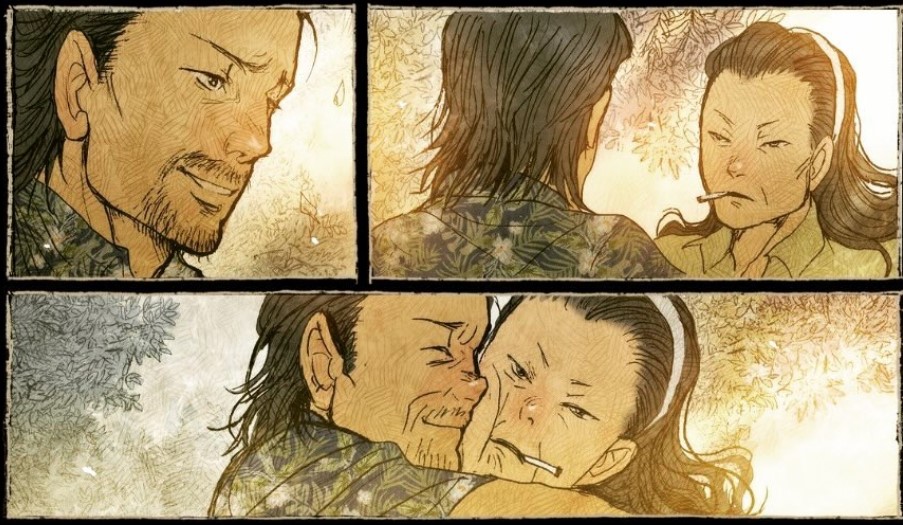
This world that you’ve created already sounds rich just based on the synopsis. As a writer, how do you know when the world-building is done and the scripting needs to start?
At a certain point, I just go. I like to work organically -- I might have the structure in mind, but I save room for it to be fleshed out and enlivened during the actual writing. I like to be surprised. I know it might seem strange that a writer can be surprised when they're the ones in charge of the story and the characters, but the unconscious is a wild thing, and it's even wilder when you hand the reins over to the characters. As a writer I play two roles, simultaneously: my conscious self makes sure a narrative holds together, and sets the ground rules -- and then my unconscious self begins to play, and indulge in spontaneity.
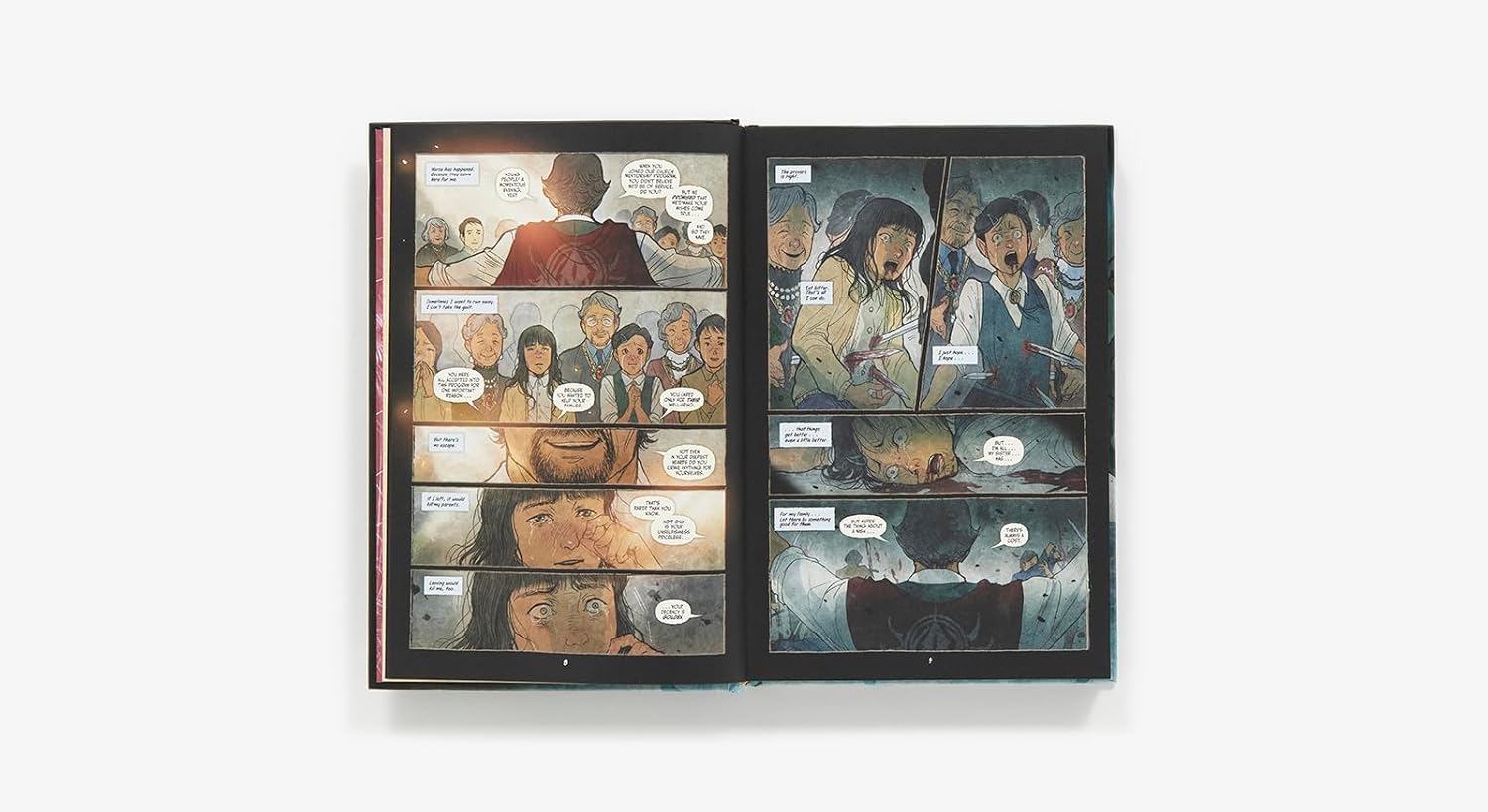
What made Sana the right artist for the job?
Sana and I have been collaborating for almost twelve years -- first at Marvel Comics on X-23 -- and then later, on Monstress. And there are endless reasons why we work so well together -- some of which can't be described, in the same way that deep and abiding friendships can't always be articulated -- but first and foremost we trust each other, and are on the same creative wavelength. We enjoy the weird and subversive, and the funny -- we speak the same creative language -- and I have utter faith in Sana's visual narrative power. That's the short, punctual version of that answer. The long version lives in our work, in the unseen joy of collaborating with someone like Sana who constantly inspires me. Everything I write, I write for her, hoping she'll enjoy it, and find something worthy in it. And I can't count how many times she's created a work of art that is so filled with life, so energetic, that it alters the course of our narrative, in startling and wonderful ways.
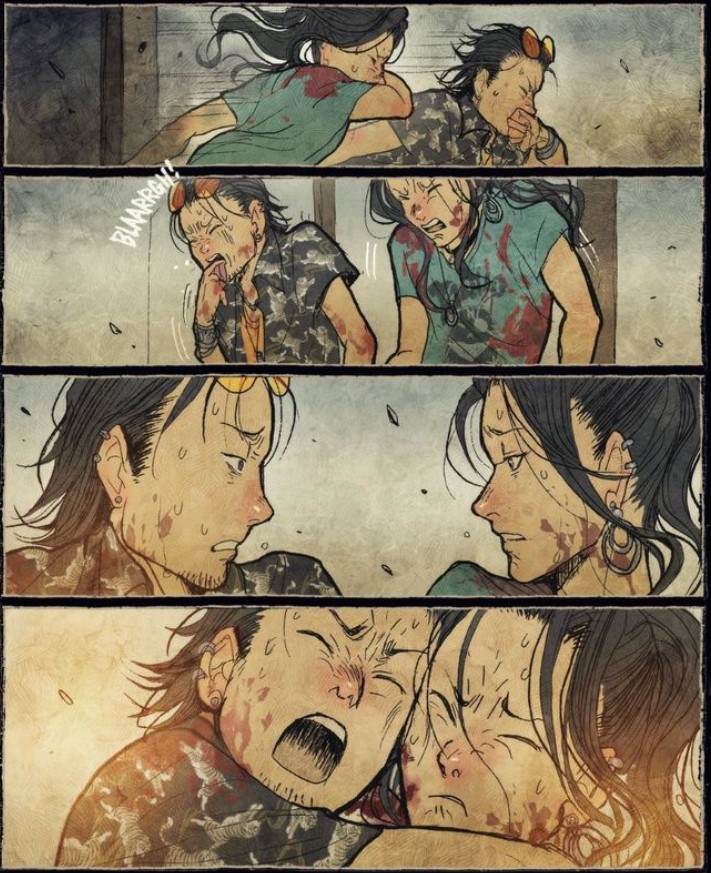
Looking forward, what can readers expect from book two?
Demons, cults, alternative realities! At the end of She Eats the Night (Book 1), a much larger supernatural world is hinted at. Here, in Her Little Reapers, that world begins to dramatically collide with Milly and Billy as they try to find new purpose in their lives (and new troubles). It turns out that the haunted house across the street isn't quite done with them -- and the twins are pulled into a mystery that forces them to make some hard choices about who they want to be -- which is very much at odds with what their parents think is good and safe.
That's the eternal struggle between parents and their children, but when the supernatural is involved -- along with a great deal of ignorance -- the consequences can be deadly. Sometimes (more often than not) with great power, there is great irresponsibility -- a lesson, the twins will discover, that is usually learned too late.
In terms of audience, who is Night Eaters for?
I almost never have a set audience in mind, because I think it's impossible to predict who will be drawn to any particular story. But, generally speaking, if you like urban fantasies, horror, or comedy -- or family drama -- you might enjoy The Night Eaters.
